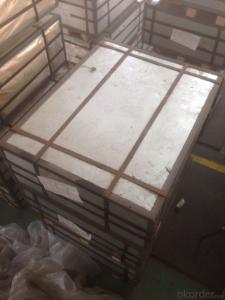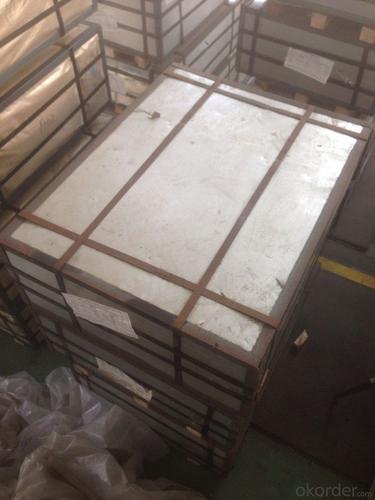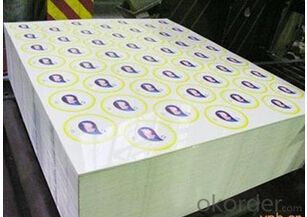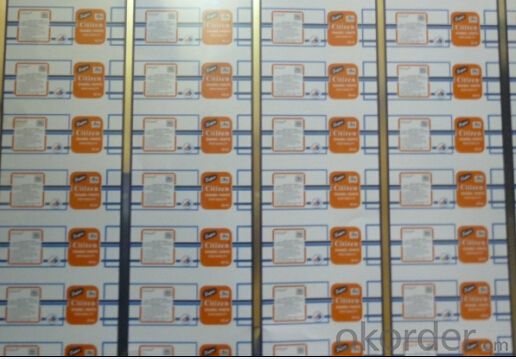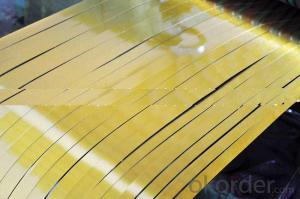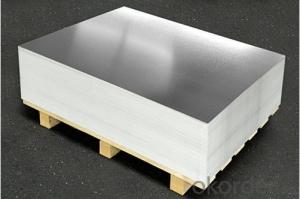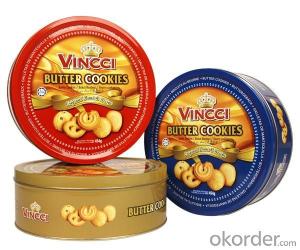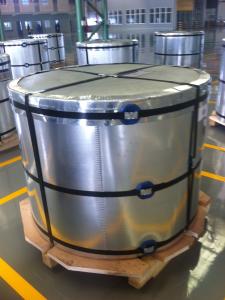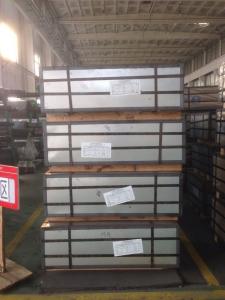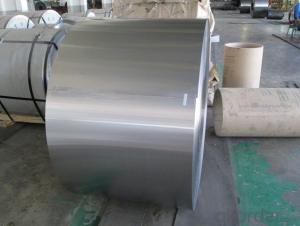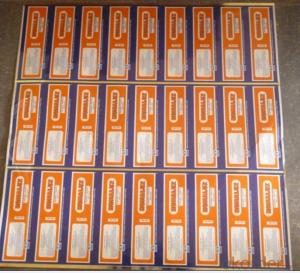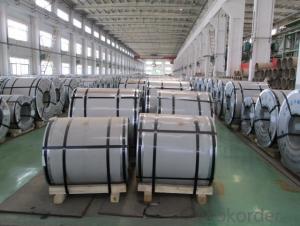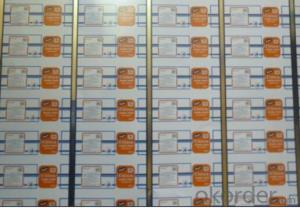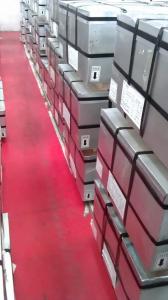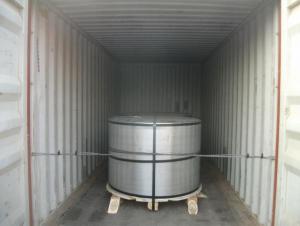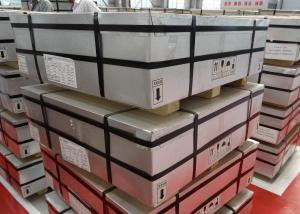Printing Tinplate Coils With Prime Quality for 0.27mm
- Loading Port:
- Tianjin
- Payment Terms:
- TT OR LC
- Min Order Qty:
- 25 m.t.
- Supply Capability:
- 1000 m.t./month
OKorder Service Pledge
OKorder Financial Service
You Might Also Like
Printing Tinplate Coils With Prime Quality for 0.27mm
1.Structure of Description
Printing Tinplate Coils With Prime Quality for 0.27mm is one of the metal packing materials, which is widely used for making painting cans ,chemical package cans , electrical cable ,battery and metal printing etc.
2. Main Features
Steady and high quality
Fast shipment
Good experience for export work
For the surface, Plate uniform in thickness,uniform and smooth tin coating, without flaws,rusts,scratch,wave,nick of tin coating etc.
Price competitive
3. Images
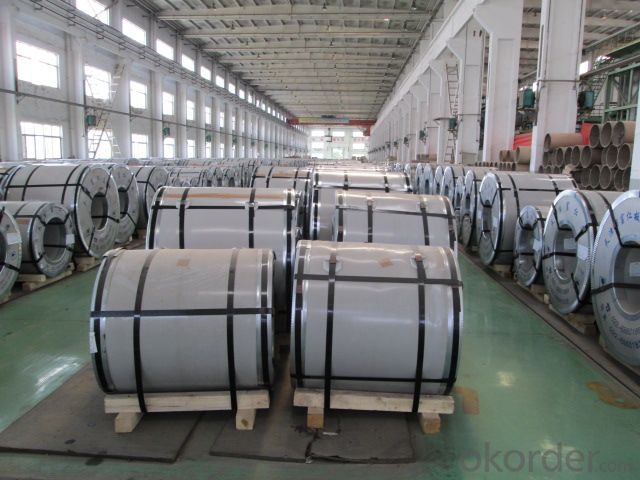
4. Specification
Standard : GB2520-2000 ,JIS G3303
Steel type : SPCC
Coating : 2.8/2.8
Surface: Bright, Stone ,
Thickness:0.31
Width :600MM~1000MM
Temper : T1~T5
Package: tinplate wrapped completely with an inner cover of plastic or waterproof papers with vorners protected with metal angels.
5.FAQ
A. What is the package of tinplate? (Referred as below)
For sheets, thin plastic film + rust-proof paper + metallic cover + metallic angles+ steel band strips + fumigated wooden pallet.
- Q: What are the main growth opportunities for the tinplate industry?
- The main growth opportunities for the tinplate industry include the increasing demand for sustainable and eco-friendly packaging solutions, the rapid growth of the food and beverage industry, and the rising popularity of canned products in emerging markets. Additionally, technological advancements in tinplate production and the development of innovative coatings and printing techniques offer opportunities for differentiation and market expansion.
- Q: What are the common sizes and shapes of tinplate products?
- Common sizes and shapes of tinplate products vary depending on their purpose and industry. However, some commonly seen sizes include cans ranging from small containers for food and beverages (such as soda cans) to larger ones for bulk products (such as paint cans). Tinplate products also come in various shapes, including rectangular, cylindrical, and irregular forms, to cater to different packaging needs and maximize storage efficiency.
- Q: What is the difference between tinplate and tin-free steel?
- Tinplate is a thin steel sheet coated with a layer of tin, whereas tin-free steel is a steel sheet that does not have a tin coating. The main difference lies in their corrosion resistance properties, where tinplate offers better protection against rust due to the tin layer, while tin-free steel relies on other coatings or treatments to prevent corrosion.
- Q: How is tinplate stored and transported?
- Tinplate is typically stored in a dry and well-ventilated area to prevent moisture and corrosion. It is often stacked on pallets or shelving units to maximize space utilization. When it comes to transportation, tinplate is usually packed in bundles or coils and loaded onto trucks, ships, or trains. Proper packaging and securing methods are employed to ensure its safety during transit, minimizing the risk of damage or deformation.
- Q: How does tinplate perform in terms of fire resistance?
- Tinplate performs well in terms of fire resistance due to its low flammability and high melting point, making it less prone to ignite or support combustion.
- Q: What are the main applications of tinplate in the energy industry?
- Tinplate finds various applications in the energy industry, primarily in the manufacturing of batteries and solar panels. It is commonly used as a protective coating for the metal components of batteries, preventing corrosion and extending their lifespan. Additionally, tinplate is used in the production of solar panels, where it acts as a reliable barrier against moisture and other environmental factors, ensuring the longevity and efficiency of the panels.
- Q: Can tinplate be used for military applications?
- Yes, tinplate can be used for military applications. Its durability and corrosion resistance make it suitable for various military equipment and components such as ammunition boxes, fuel cans, and armor plating. Additionally, its ability to withstand extreme temperatures and provide electromagnetic shielding further enhances its utility in military applications.
- Q: Can tinplate be used for energy storage applications?
- Yes, tinplate can be used for energy storage applications. Tinplate, which is a thin steel sheet coated with a layer of tin, offers good corrosion resistance and durability, making it suitable for various energy storage purposes. It can be used in the construction of batteries, capacitors, and other energy storage devices. Additionally, tinplate's ability to maintain airtightness and prevent moisture penetration makes it a reliable choice for storing and preserving energy.
- Q: What are the common industry standards for tinplate?
- The common industry standards for tinplate include specifications for the tin coating weight, the base metal thickness, surface finish, and the adhesion of the tin coating. These standards ensure consistency and quality in the production of tinplate, allowing for its effective use in various industries such as packaging, automotive, and construction.
- Q: Can tinplate be used as a water tower? Is hot water durable?
- But because tinplate is very thin iron sheet, forming force is poorer, cannot make water tower. However, the tinplate has the characteristics of corrosion resistance and non toxicity. It can be used as the inner container of the water tower. It is sanitary and durable. However, when cleaning, must not scratch the surface of the tin layer, otherwise it is easy to rust.
Send your message to us
Printing Tinplate Coils With Prime Quality for 0.27mm
- Loading Port:
- Tianjin
- Payment Terms:
- TT OR LC
- Min Order Qty:
- 25 m.t.
- Supply Capability:
- 1000 m.t./month
OKorder Service Pledge
OKorder Financial Service
Similar products
Hot products
Hot Searches
Related keywords
